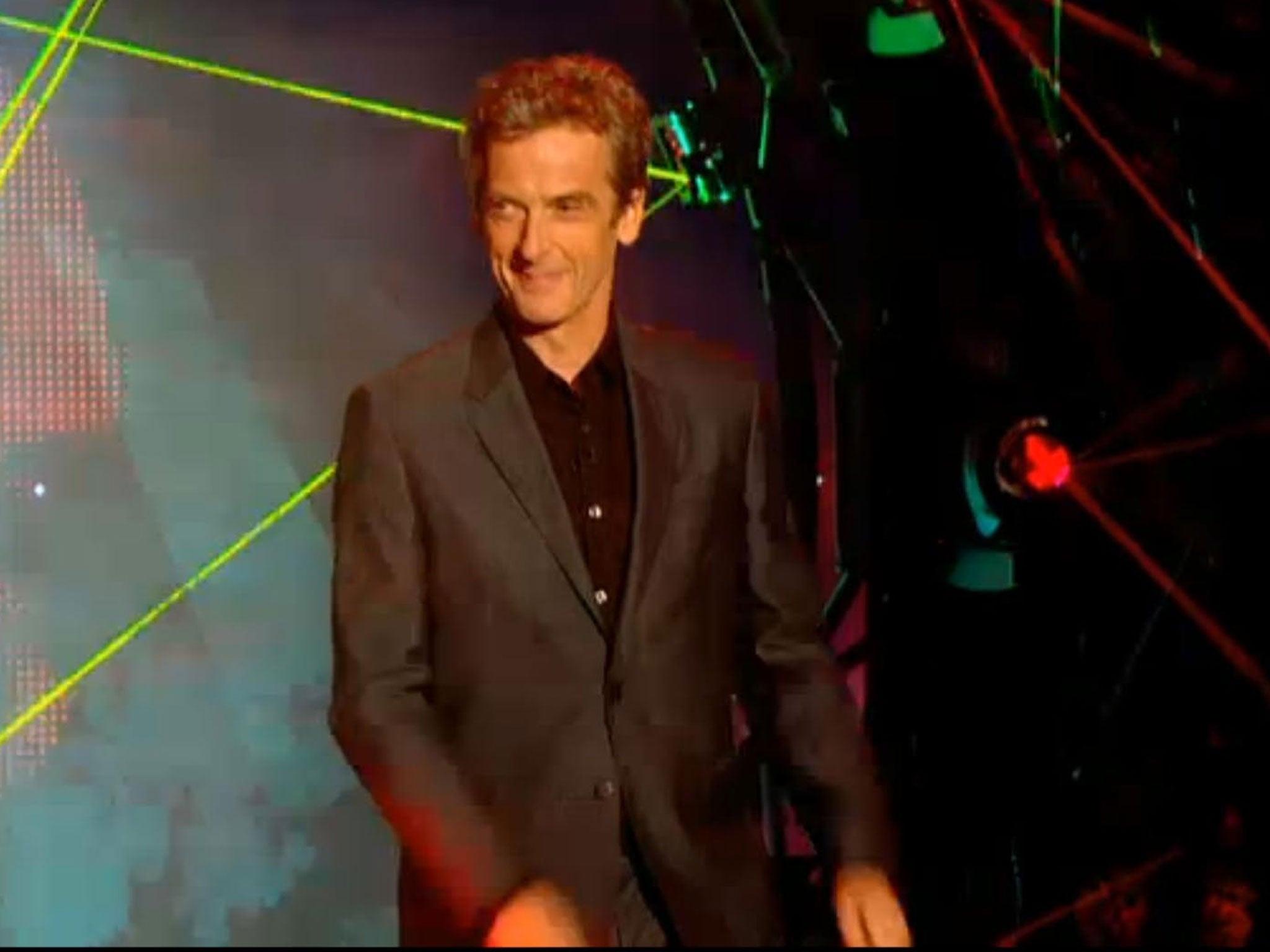With its pointless TV special, Doctor Who has regenerated into a version of The X Factor
The fanfare over Peter Capaldi's new role came at a high cost


The next series of Dr Who sees the Time Lord go to a strange galaxy and a time far in the future, where the galaxy’s chief state-funded broadcaster does a prime-time show, not of a new drama, but merely of an announcement of which actor is to play the lead in that drama. The show is surrounded by mountains of inter-galactic hype. No, it would never wash.
Certainly, I for one could barely believe my eyes that the BBC put on a special programme, hosted by Zoe ball, to reveal Peter Capaldi as the next Dr Who, or that it was reported as a major news event, or that nearly seven million people, 28 per cent of the viewing public at that time, tuned in.
You think that’s the end of it? Think again. What broadcaster seeing those figures is going to be able to resist such stunts in the future? How the producers of Downton Abbey must be regretting not unveiling Shirley Maclaine and Paul Giamatti in similar fashion, with live links to Hollywood. So who’s next for the casting revelation spot, a new anaesthetist in Holby City, Peppa Pig’s second cousin?
Whoever it is, it can’t be as crass as the BBC doing this with a new Dr Who. Have they actually watched the series? Dr Who is meant to regenerate, one doctor turning miraculously into the next (with its own dramatic revelation of the actor as part of the show). Yes, we all know they are actors being hired and signing contracts rather than going in for the regeneration game, but is it really necessary to spell this out, particularly to a young audience who might like to have some vestiges of magic left to believe in?
And that’s the point. What the BBC has done is strip Dr Who of its magic. It’s no longer about science fiction and time travel, it’s about actors and agents, celebrities and speculation. And even for those of us who aren’t Dr Who addicts, it takes away some magic too.
I rather liked thinking of Peter Capaldi as the persona of his other famous role - the swearing, scheming spin doctor Malcolm Tucker in The Thick of It. But what I saw last Sunday night was Capaldi every inch the thespian, blushing as he received intensely serious congratulation from fellow actor Matt Smith, his predecessor as Dr Who, with Smith coyly and nervously stepping out of character.
The BBC should not have gone behind the greasepaint. Drama, not least sci-fi drama, not least drama with a sizeable audience of children, not least Dr Who and its premise of regeneration, depends on a suspension of disbelief and a willingness to embrace the magic of the story. This ludicrous publicity stunt for a series that doesn’t even need extra publicity, broke that cardinal rule of drama and attempted to turn Dr Who into The X Factor. The only surprise is that Capaldi didn’t sob his heart out on Zoe Ball’s shoulder.
***********
There is a debate to be had that not all arts cuts are by definition bad. But the argument reportedly employed by playwright Mark Ravenhill - that sometimes artists need hard times to produce their best work - is a tiresome old canard. Yes of course there are many artists who have produced works of greatness while enduring poverty. But equally there are many who prove that great art comes from struggles within the mind and the spirit and is not related to financial circumstances.
Puccini surely composed as well in his lakeside villa as he would have done in a garret. Think of Rubens and his riches. And Picasso. Think of Handel, comfortably cushioned in his Mayfair house but always developing bold new forms. Think of prosperous country squire Benjamin Britten. Genius is not dependent on an overdraft.
***********
Theatre directors tend to have a high public profile when they work in London, and lose it when they move to the regions. That’s a pity, not least in the case of former Young Vic director David Thacker, who is doing excellent work at the Octagon theatre in Bolton. I’m especially interested in his initiative there of introducing a theatre “season ticket” for audience members. For the £120 season ticket, they can see 10 shows, all home-produced productions, at only £10 a time. Already over 1,000 have been sold for next season. I like the thought of the citizens of Bolton with a season ticket for Bolton Wanderers in one pocket and a season ticket for the Bolton Octagon in the other. And one of the two is definitely Premier League.
Join our commenting forum
Join thought-provoking conversations, follow other Independent readers and see their replies
Comments
Bookmark popover
Removed from bookmarks